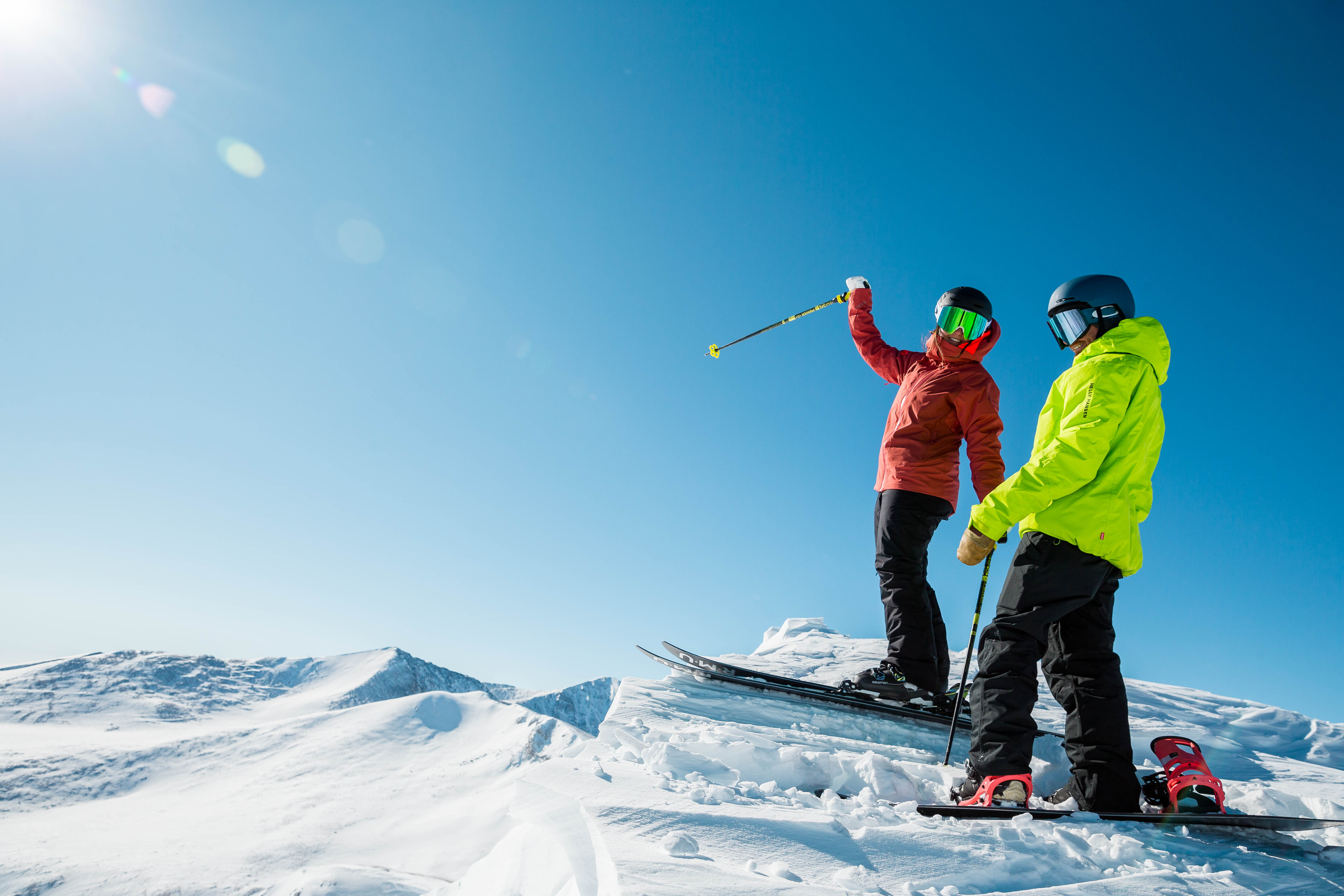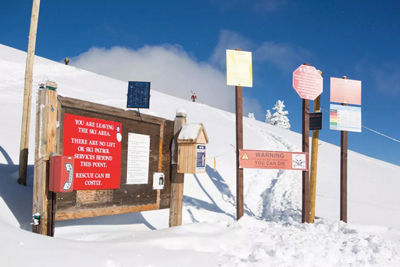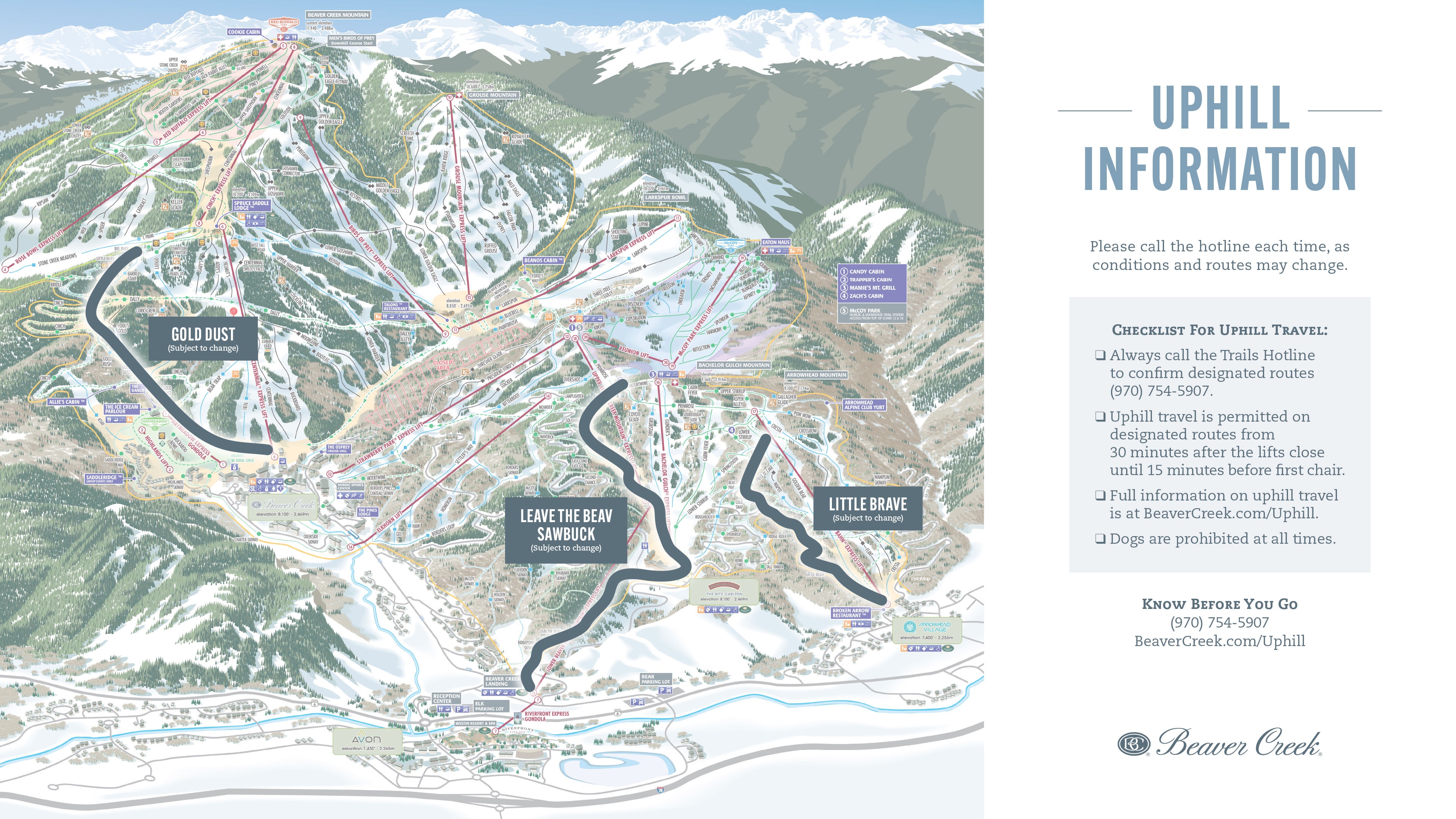Use and Access
Backcountry use, where available, allows Resort guests to leave the Resort through designated exit points to enter unmarked, unpatrolled, and unmaintained snow on United States Forest Service (USFS) or other public lands. Beyond these gates, you’re on your own—so getting the right education and equipment is critical to a safe and memorable experience.
(Note that unless you’re exiting the Resort through a designated exit point, you may be trespassing on private property and could incur penalties, fines, or have your pass suspended.)
Beaver Creek does allow guests to depart the resort from designated exit points, but use and limitations vary.






